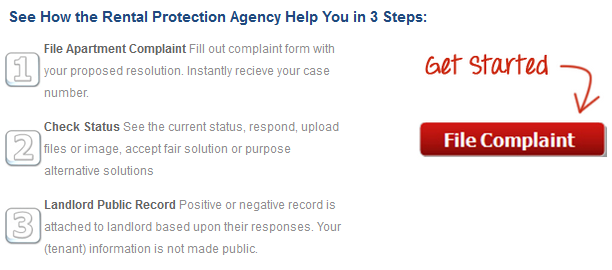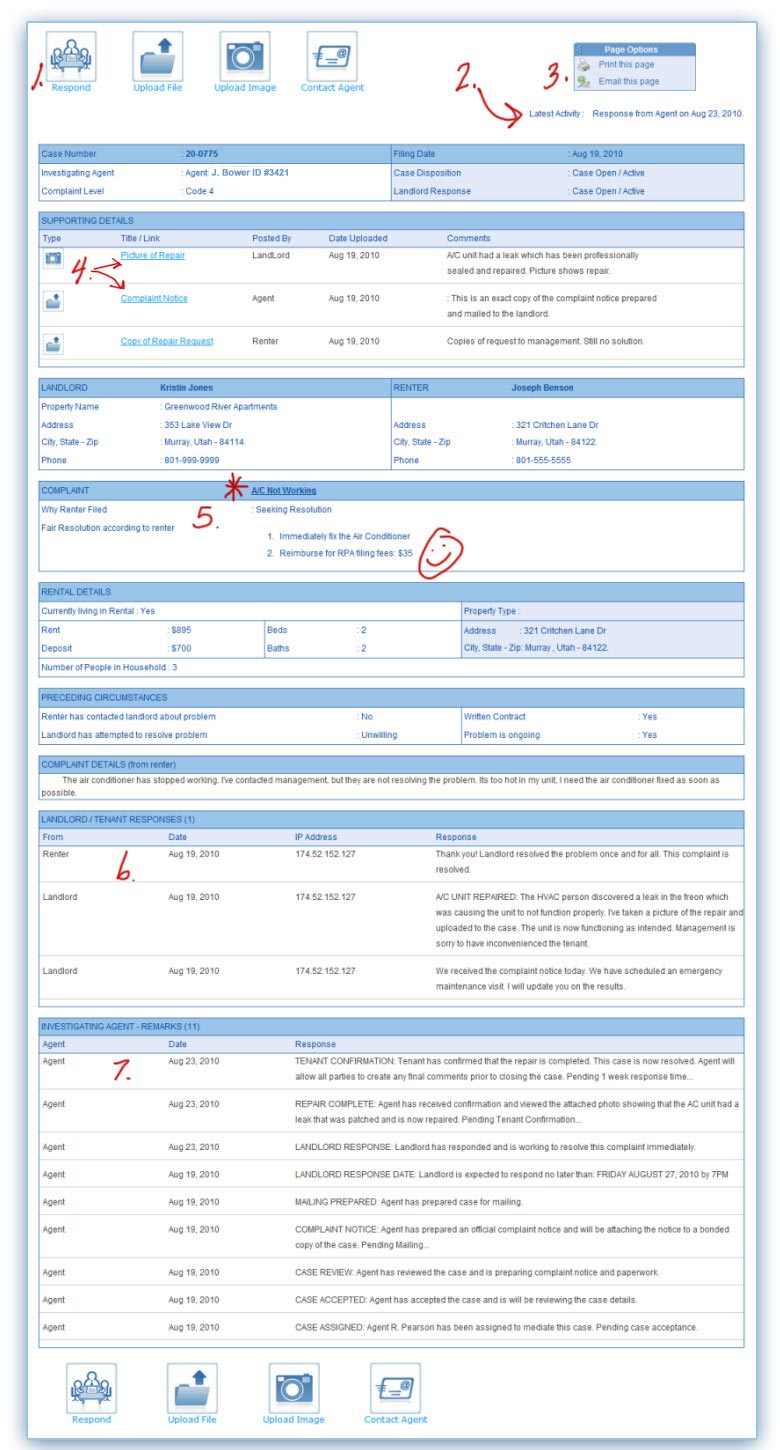What Happens if I don’t move out after Writ of Possession?
By Tenant
Although the housing market is gaining momentum with the increased number of ground breaks and construction, a good number of homes is still being foreclosed. Some of these foreclosed homes even have tenants paying rent on-time. You’re lucky if your landlord has been open to you about the foreclosure (or the short sale, whichever is applicable). But what if you never knew about the foreclosure and you just suddenly get an eviction notice from the Sherriff’s office?
This could be a rather unbelievable situation but the truth is, it happens. So what happens during a foreclosure? What is a writ of possession? Should you be alarmed if you get one?
A foreclosure happens when your landlord fails to meet his monthly mortgage obligations. In most cases, your landlord has to be in default for 90 days before his bank can begin the formal foreclosure process. During which time, your landlord may decide to just short sale the home in order to avoid a foreclosure. When this happens, you will be expecting potential buyers to come to your home and look around. These potential buyers will be accompanied by an agent.
Open houses can be a real nuisance because a question on your privacy is likely to come up. In cases like these, you can do the following:
- Request from your landlord that the open houses be scheduled two or three times per week and on specific times. This means that your landlord has to coordinate with his agent when it comes to showing the house to people.
- Ask your landlord if you can mutually break the lease agreement on grounds that you are no longer able to enjoy the peaceful enjoyment of your home.
- Terminate your lease agreement by moving out earlier than expected. However, this means that you will be responsible for paying the early termination fees.
- Continue to make your rental payments. The foreclosure is between your landlord and his lender. Just because he hasn’t been paying his mortgage doesn’t mean that you stop paying rent. Those are two different cases.
Once the house has been sold, you will be getting a writ of possession. This means that the new owner is declaring his or her possession on the home. The new owner will decide if they want to keep you as tenants or if they want you out of the home. Usually, a 90-day eviction notice would be sent you if the new owner chooses the latter.
If you don’t move out after the 90-days, the new owner will go through the formal eviction process. You don’t want that to happen. You don’t even want an eviction on your record.
What are your rights?
While you cannot force your landlord to stop a foreclosure, you have a lease with them. So by losing the home due to foreclosure, you will be subject to several inconveniences. You can file a complaint against your landlord and request the he cover the following expenses as your resolutions:
- Moving out
- Application fees
- Apartment searching costs
- And so on
Use the complaint form available through this link: http://www.rentalprotectionagency.com/complaint_center.php
Edited on: Saturday, February 23rd, 2013 8:56 pm
15 Responses to “What Happens if I don’t move out after Writ of Possession?”
|
Cecil February 23rd, 2013 9:00 pm |
|||
|
If you signed the lease agreement knowing that the house is in foreclosure, then I don’t think you can sue your landlord for the consequences of his economic failures. |
|||
|
Curt February 24th, 2013 7:20 am |
|||
|
Yes, and suing will not help much since the landlord may not be bursting with cash. Remember, he just lost a property to foreclosure and chances are, he has not earned anything from the sale. The bank could have all the money. |
|||
|
Jonah February 24th, 2013 5:40 pm |
|||
|
I would suggest moving out when given a 90-day notice instead of just staying and waiting for an eviction. |
|||
|
Vaughn February 25th, 2013 4:00 am |
|||
|
The length and complexity of the process is almost always an assurance that you will get notified of what’s happening. For tenants who say that they were left in the dark all throughout the process, you need to check with the court and your postal service as to where all the notices have gone to. And where were you when there were home showings? |
|||
|
Yukiko February 25th, 2013 2:20 pm |
|||
|
A foreclosure depreciates the value of homes in the neighborhood so it might be a good idea if you would look for an apartment or a house for rent within the neighborhood too. There could be a substantial decrease in rent compared to what you are currently paying. |
|||
|
Myrtis February 26th, 2013 12:40 am |
|||
|
If you have been served an eviction notice and it was the first time you have ever received communication regarding the foreclosure, then you can check the court website for details. Knowing the information could help you understand the steps that you need to do next. |
|||
|
Vaughn February 26th, 2013 11:00 am |
|||
|
When the house is being offered for a short sale, you can write down an offer. It doesn’t matter how low your offer is, a short sale is basically like an emergency sale to stop a foreclosure. The bank would settle for any amount (usually the highest offer) just to get something back from your LL. |
|||
|
Lynn February 26th, 2013 9:40 pm |
|||
|
If you didn’t know about the whole thing that’s going on, it could be that the LL mispresented you in court by saying that the property is unoccupied. But still, all those house showings should keep you uptodate. |
|||
|
Emmett February 27th, 2013 8:20 am |
|||
|
You can write a letter to the judge and type EMERGENCY at the top if you want more time after being served the eviction order. The judge might favor you if you were mispresented in court in the previous foreclosure proceedings. Create 5 copies and bring one to the Clerk Administrative Desk to make sure that the judge will really see and read your letter. You will also need to bring a copy to the Sheriff’s department and another one to the LL. |
|||
|
Larhonda February 27th, 2013 6:40 pm |
|||
|
Thank you for outlining the procedure. However, there could be some variations depending on the state so it’s best to do a check first. |
|||
|
Salina February 28th, 2013 5:20 am |
|||
|
As a landlord, I understand how important it is to keep your tenants in the loop of what’s going on. I want to keep a good relationship with my tenants by helping them understand what I’m going through. This way, I’m also hoping that they won’t file a complaint against me and ask for a refund of the moving out expenses that they will incur. |
|||
|
Gwendolyn February 28th, 2013 3:40 pm |
|||
|
Thank you for this article. It has helped me to better understand the procedure. |
|||
|
Micah March 1st, 2013 2:00 am |
|||
|
It’s difficult to move a big family out of a house on the date in the evicition order so it’s a good idea to request for an extension. Thanks for outlining the steps. Although it may be different in my state, at least I now have a general idea of what to do. |
|||
|
Shayne March 1st, 2013 12:20 pm |
|||
|
My previous rental was foreclosed but the landlord was kind enough to inform us about it ahead of time. He also offered to break the lease since there will be showings – multiple – everyday. So we broke the lease agreement and weren’t charged termination costs. There were a few deductions from the security deposit though for cleaning the property but that was it. I guess we were just lucky. |
|||
|
Hollie March 1st, 2013 10:40 pm |
|||
|
Yes, you were lucky. Others had to find out for themselves since their landlords kept it from them. |
|||
Close
Yes, the RPA® Can Help You!
Filing an official complaint is the nation's fastest way to solve tenant problems.

Not Ready? Learn more...
Need Help Filing Your Complaint?
Agents Available Mon- Fri 10am to 10pm
Recently Resolved Complaints:
See how the Nation's Rental Authority has helped thousands of tenants already!
-
Not Doing There Job...
Waco, Texas - 76708
Case Number 23-6984
-
Repair Issue Of Black Mol...
SPOKANE VLY, WA - 99216 2958
Case Number 24-0740
-
Wall Need Fixtures Floori...
Bklyn, New York - 11213
Case Number 24-1922
-
Repair And Noise Issue...
AURORA, CO - 80014 5341
Case Number 23-7576
-
Repair Issue...
REDDING, CA - 96003 3250
Case Number 23-9937
Ask Question:
Post a new question to the RPA Tenants rights forum.
You Have Tenant Rights.

Recently Posted Questions:
Over 4,000 questions have been asked by tenants including these new posts:
Tenant Rights Categories
Popular categories about renters rights.
-
- Apartment Complaint (618)
- Frustrated Landlord (21)
- Frustrated Renter (949)
- General Topics (556)
- Landlord humor (2)
- Landlord Legal (25)
- Landlord Problems (846)
- Landlord Q & A (14)
- Landlord Stories (5)
- Landlord Tips (7)
- Legal Questions (1105)
- Rent Horror Stories (192)
- Rent Humor (12)
- Renter Q & A (449)
- Tenant Problems (34)
- Videos Post (109)













